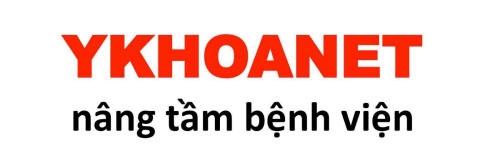Healthcare Information Management and the CIO
By HTT, MD
=*=
Healthcare Information as a Strategic Resource
Healthcare industry is information-intensive. Until recently, data have been collected as by-products of health care services without any further analysis beyond data processing. Usually, the medical record department, besides the finance department, is responsible for the storage and processing of these data. These data, under this raw form, do not help much in strategic planning of the institution.
The healthcare market has changed a lot recently, from fee-for-service to managed care. Competition has become fierce in different parts of the nation. Regulations are now tighter. In response to these changes, healthcare institutions rely on information system as a leverage to position the institutions ahead of competitors and as a self-regulatory system to continuously improve the quality of service provided by the institutions.
Although we are still far from the ideal goal of wisdom, on the continuum from data to wisdom, different levels of information systems have been developed in response to different needs. The significance of viewing healthcare data as corporate strategic resources may be summarized as follows1 (Fig 1):
· Information is vital for the effective management and performance assessment of an organization.
· Effective planning, decision-making, and operation of any healthcare service facility are virtually impossible without proper access to and utilization of appropriate and meaningful information.
· The process of generating relevant and meaningful healthcare data to assist decision-making will by itself consume a significant amount of resources.
· As cost containment pressures grow and as new information technologies continue to advance, the need for information changes with time; this trend will intensify the urgency of managing the information resource in a health service organization more efficiently, effectively, and flexibly.

Evolution of the CIO Concept
The concept of CIO (Chief Information Officer) as a new administrator has evolved from data processing director, and from MIS director to CIO over the years, stressing the strategic importance of healthcare information for top management. A national survey done in 19872 shows interesting facts:
· CIOs report directly to CEOs (Chief Executive Officer) or to COOs (Chief Operating Officer).
· CIOs are members of the executive cabinet.
· CIOs attend board meetings and some CIOs have been made actual voting members.
· CIOs have increasing budget responsibilities.
· CIOs’ salaries are consistent with their high status within the organization.
Characteristics of a CIO
The CIO must impersonate three persons into him/herself-a politician, a bureaucrat and a technocrat1:
· As a member of top management, the CIO must get the support from the CEO and other horizontal-level colleagues. He acts as a change agent, and not as an implementer.
· As an administrator, he takes care of the efficiency, the efficacy and the excellence of the institution. He gets the support from IS people and end-users.
· As a technocrat, he understands major technological trends, basic hardware and software, and networking. He assures that confidentiality is guaranteed and a disaster recovery is in place. He is highly regarded by IS staff.
CIO’s Functions (Fig 2)
The most important role of the CIO is strategic information planning. He must assure that IS strategic planning fit with the organization’s strategic planning. His ultimate goal is to position the institution in a favorable place in a very competitive market1. In addition, he supervises or directs these activities:
· Monitor QOS (quality of service) of the institution continuously.
· Evaluate, purchase, implement and maintain healthcare information systems.

Candidates for the CIO position
For the time being, CIOs come from different backgrounds. There are even some individuals who perform the function of a CIO, but who do not hold the title of CIO. The education and training background, as well as working experience, influences the CIO’s view.
Most of the CIOs have a background in IS education and training. They have solid understanding about IS in general, but lack understanding of the healthcare content. The CIOs usually come from other industries, outside the healthcare field. While they can bring new perspectives from other industries, they miss several sensitive points in healthcare service, such as the paradox between easy access and privacy/confidentiality.
The medical record and coding people have low status within healthcare organizations. They totally lack an enterprise view of the problems. In addition, most directors of medical record departments hold undergraduate degrees, so they get less respect from other professionals.
Librarians, by virtue of their training in sorting and storing information, seem fit to the CIO position at the first glance, but unfortunately, they do not have business acumen and organization management ability.
The most "big mouths" for the position of CIO in the organization are the healthcare providers, especially physicians. Usually, these physicians think they are the best for the position because of their knowledge for the content of information, coupled with their acquaintance with some general use or specific healthcare use applications. At best, they can be only champions to the cause.
The only candidates who are best suited for the CIO position are professionals coming from different backgrounds, getting specifically trained in healthcare information management at the level of master degree. They devote their whole energy and time for the cause of healthcare information resource management3.
1 Tan JKH: Health management Information Systems. Theories, Methods, and Applications. Gaithersbursg. Aspen, 1995
2 Ball MJ, Douglas JV, O’Desky and Albright JW: Healthcare Information Management Systems. A Practical Guide. New York. Springer-Verlag, 1991
3 Lorenzi NM and Riley RT: Organizational Aspects of health Informatics. Managing Technological Change. New York. Springer-Verlag, 1995


